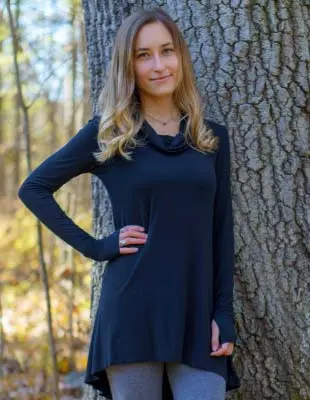 Ana Diges
Ana Diges
Ana Diges, a senior majoring in materials science and engineering at the University of Wisconsin–Madison, is building a rich and purposeful education by pursuing multiple certificates and participating in a variety of educational programs. In addition to her rigorous engineering coursework, Diges is enrolled in the Nelson Institute’s environmental studies certificate program, is a member of the Nelson Institute’s Community and Environmental Scholars Program (CESP), serves as a project manager with Engineers Without Borders and is pursuing a certificate in global health.
For Diges, these programs provide the context for how materials science can be used to make the world a better place, and ultimately, are what inspire her to continue on in the major.
“These programs have been my saving grace,” said Diges. “You can learn transport and thermodynamics on their own, but really you need some sort of guidance or idea of how to apply it. They’re giving purpose to my engineering work.”
Throughout her college education, Diges has discovered a rich passion for people, health, and the environment. However, uncovering these passions has been a journey, leading her down a path that she did not anticipate when she first applied to UW–Madison.
Diges comes from a multicultural family and spent most of her childhood living in Spain, her mother’s home country. But when Diges and her family moved back to Wisconsin just in time for her to enter high school, she says the transition ultimately influenced her decision to pursue a STEM-focused career.
“Moving to the States was difficult and English was not my strong suit, so I decided to go into something that is more math and science based — I know those languages,” she says.
Diges had taken a materials science course in high school and was motivated to continue in the field. As she began her engineering career, she found her interests stretched beyond her core STEM courses. In her second semester she enrolled in Environmental Studies 260: Introduction to Ecology—a decision that marked the beginning of her interdisciplinary education.
Diges said the environmental studies class was “a breath of fresh air” that fulfilled the passion she was craving at the time. From there, she continued to find inspiration from courses in subjects such as sociology and population studies, providing her with a new awareness of social and environmental issues, and eventually leading her to pursue certificates in environmental studies and global health.
She also served as a project manager for the UW-Madison Engineers Without Borders chapter, implementing a water distribution system in Camarones, Ecuador, a community that has long been deprived of access to potable water.
“Engineering Without Borders makes you responsible and conscious, and sensitive to other people’s needs,” she says. “Everyone that joins seems to have that ‘more than just an engineer’ mentality. It’s a fantastic, unique opportunity on campus.”
Ultimately, Diges, who will graduate in spring 2021, says these varied interests and experiences have played a major role in shaping ideas for her future career. Drawing from her environmental education, Diges is currently interested in exploring how renewable materials can be used to solve some of the world’s biggest problems.
“There are few world challenges that I can see that do not involve a material science input in solving,” she says. “After reading so much and learning so much in class with environmental studies, I now have a more clear path forward. I’ve found certain problems that concern me, and that I know that I can contribute to with my materials science degree. So that’s really exciting.”
A version of this story was originally published by the Nelson Institute.